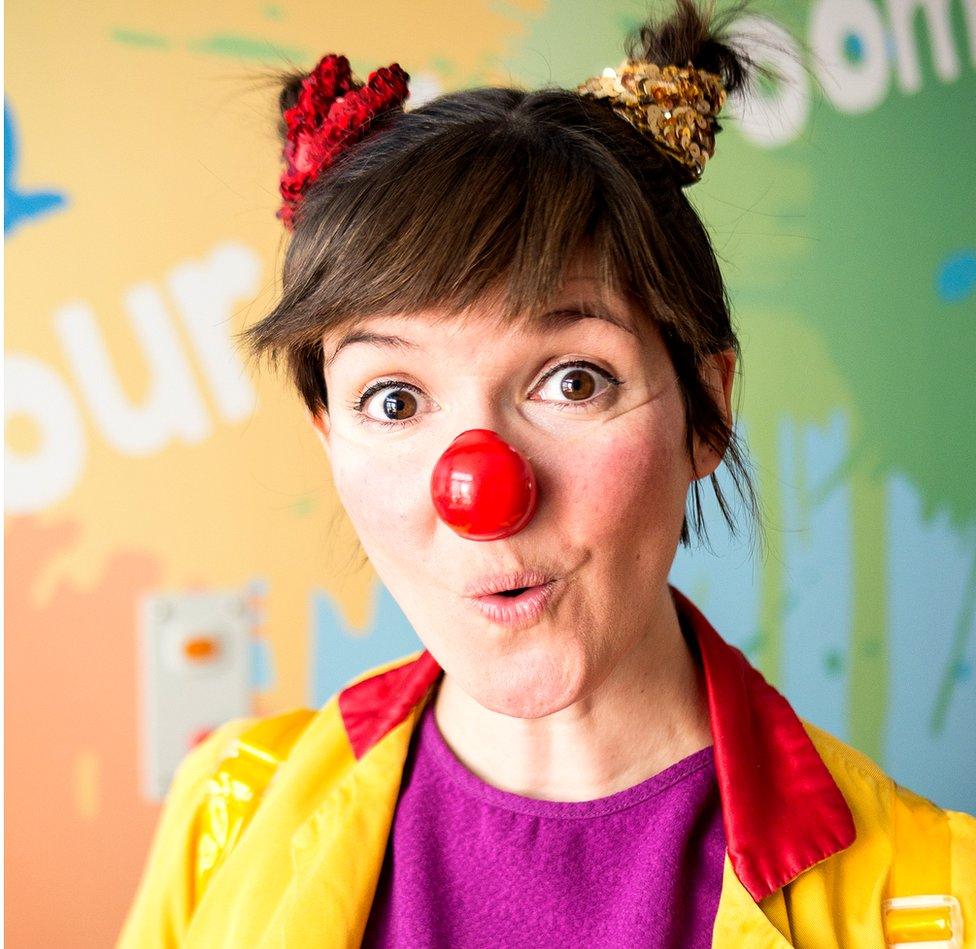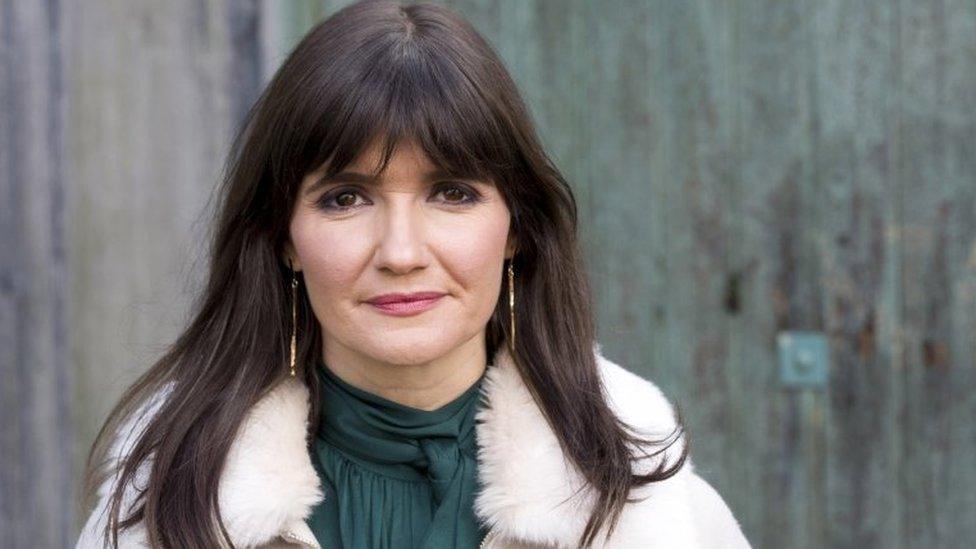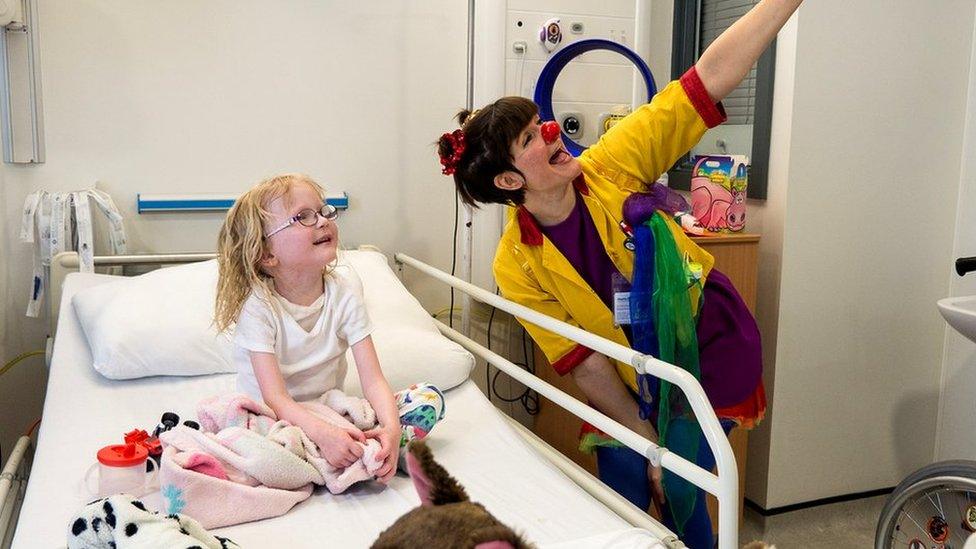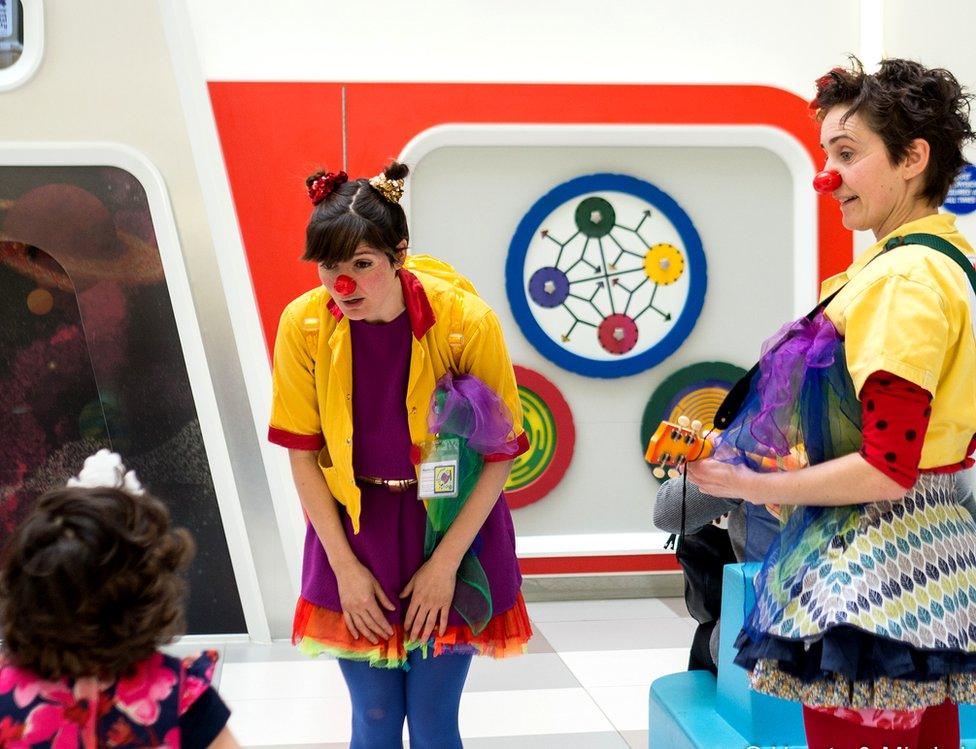Why I went from being an actor to a clowndoctor
- Published

Carmen Pieraccini brings joy to sick kids as Dr Squeegie
Scottish actor Carmen Pieraccini is best-known for hard-hitting storylines and heartbreaking scenes in TV drama River City.
But the role she has found most rewarding is not as Shieldinch's Kelly-Marie Adams, but as a children's clown.
The 42-year-old provides play therapy for Scotland's sickest children, and has been making youngsters smile for the past 12 years.
Paisley-born Carmen is a full-time clowndoctor.
As Dr Squeegie (The Weegie), she dons a bright yellow doctor's coat before meeting children who need some light in their lives.

Carmen played Kelly-Marie Adams in Scottish drama series River City
"It was a point in my life where I asked myself what did I enjoy doing when I was at drama college," she told BBC Radio Scotland's Kaye Adams Programme.
"Clowning was one of those things. I just loved it. I thought it was something I would like to do more of in my life. I was in River City but I looking for something a bit different."
Carmen went to Barcelona to train under French master clown Philippe Gaulier.
'No big feet'
Her version of the art is less about giant shoes and custard pies - it's more wholesome fun.
"We just wear the simple red nose, no make up, no big feet. We are far removed from that. It's all about being in the moment and be playful in the moment.
"The work we do as clowndoctors with the charity Hearts and Minds, external is about connecting to the child and bringing the playfulness out from that.
"It's not circus clowning with custard pies and juggling. This is a different type. It is amazing when you make the connections and find that joy, it can be very powerful."

Dr Squeegie makes a new friend
Before the Covid pandemic Carmen and the other 17 clowndoctors visited hospitals, hospices and schools for children with additional support needs.
During lockdown their work went online, but they are slowly getting back to face-to-face encounters.
Carmen said: "We always work in a duo, like Laurel and Hardy - with a high status clown and a low status clown. Then you have something to play off of.
"That's good for some kids who are a bit sensitive. We can work in the background so they can look at us from afar before getting more used to us."
The clowndoctors are referred to specific children and their aim is to connect with the child and bring play and fun. Everything is improvised.
Best medicine
Some youngsters will be confined to bed, so the clowns will pretend they are being controlled by the child's finger movements.
"When you find that spark that makes that child really laugh, it is all about going with that," said Carmen.
"Our main objective is to make people laugh and bring joy because laughter really is the best medicine."
Carmen wants to continue "bringing back the joy". She thinks everyone can benefit from looking at the world with wonder and magic again.
She is not the only well-known actor to tread the clown path.

David Arquette revealed he was studying clowning
A-list actor David Arquette revealed to America last week that he was training to be a clown.
The Scream actor said he was learning the entertainment art and that he was in a "clown period" of his life.
The 50-year-old is preparing to work with the US organisation Healthy Humour which goes into hospitals to entertain people going through tough times.
Arquette, who has bought the rights to the story of Bozo the Clown and plans to make a film on the children's character, said his "clown thing" was playing the nose flute.

Carmen in action as Dr Squeegie
Carmen could teach him a few tricks, though.
Her character does funny walks, whistles in "loads of different languages" and performs eyebrow dancing.
She said: "Your clown character is just all the things that you enjoy doing. Then when you do it on the floor hopefully other people enjoy it.
There's no make-up, no elaborate costumes, so the children can connect in a basic way.
"A wee red nose, and that's it," said Carmen. "It's the smallest mask in the world."